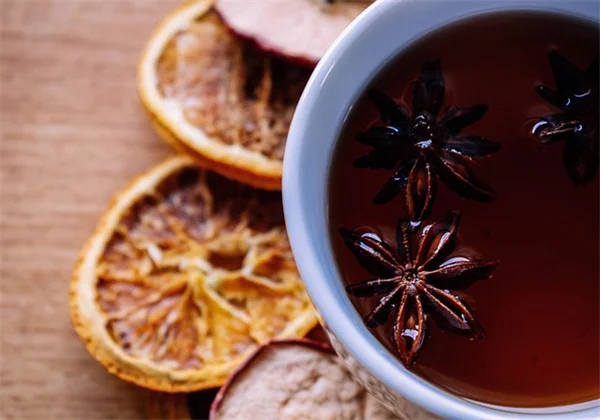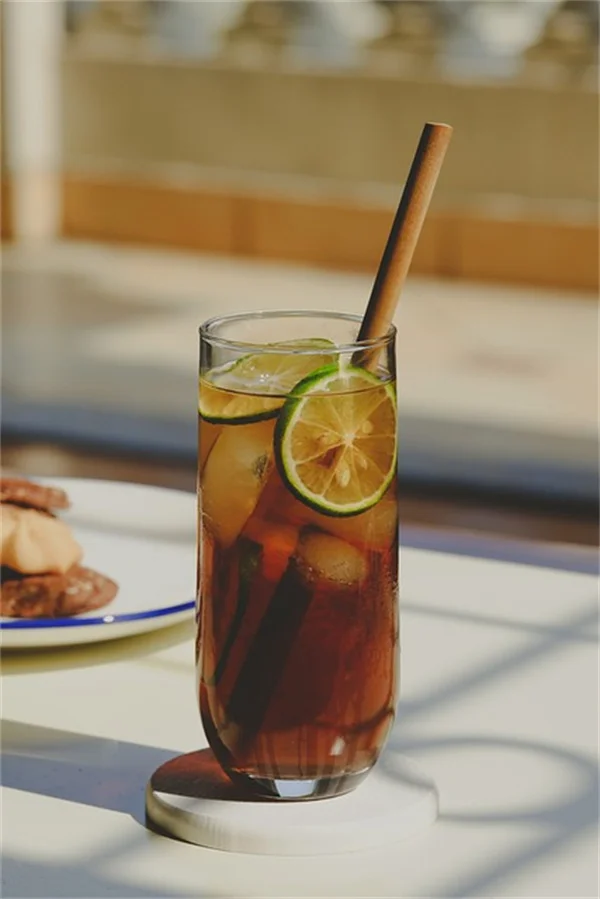Is sucralose safe to consume? The answer might surprise you - new research shows this popular artificial sweetener could be damaging your DNA. A groundbreaking study from North Carolina State University reveals that sucralose (the main ingredient in Splenda) breaks down into a harmful compound called sucralose-6-acetate that causes genetic damage and gut inflammation. I was shocked to discover that this zero-calorie sweetener - found in thousands of products from diet sodas to sugar-free desserts - may actually increase cancer risks and create leaky gut syndrome. Here's what you need to know to protect your health while still satisfying your sweet tooth.
E.g. :Can Espresso Prevent Alzheimer's? New Study Reveals Surprising Findings
- 1、The Bitter Truth About Sucralose
- 2、Sweetener Showdown: Sugar vs. Substitutes
- 3、Artificial Sweeteners and Your Microbiome
- 4、Healthier Alternatives to Consider
- 5、The Bigger Picture: Processed Foods and Health
- 6、The Hidden Dangers in Your Morning Coffee
- 7、The Sweetener Industry's Dirty Little Secrets
- 8、Real People, Real Stories
- 9、Simple Swaps That Actually Work
- 10、The Psychology Behind Our Sweet Cravings
- 11、What the Future Holds
- 12、FAQs
The Bitter Truth About Sucralose
What's hiding in your zero-calorie sweetener?
You know that little yellow packet sitting on diner tables everywhere? Splenda, the brand name for sucralose, might not be as innocent as it seems. I was shocked to learn this artificial sweetener - 600 times sweeter than regular sugar - could be damaging our DNA!
Here's what researchers found when they dug deeper: sucralose breaks down into a compound called sucralose-6-acetate in our guts. This nasty byproduct doesn't just pass through us like we thought - it actually causes DNA damage in human blood cells during lab tests. Now I'm looking at my diet soda differently...
Your gut is smarter than you think
Did you know your gut bacteria can transform substances in ways scientists are just beginning to understand? Here's the wild part - even if manufacturers remove sucralose-6-acetate during production (like Splenda claims they do), our gut microbes can still create it from regular sucralose!
When researchers tested this compound on intestinal tissue, they discovered three alarming effects:
- Increased activity in genes linked to inflammation and cancer
- Damage to the intestinal lining (hello, leaky gut syndrome!)
- Oxidative stress that could lead to chronic diseases
Sweetener Showdown: Sugar vs. Substitutes
| Sweetener | Sweetness Level | Calories | Potential Risks |
|---|---|---|---|
| Table Sugar | 1x | 16 per tsp | Weight gain, diabetes |
| Sucralose | 600x | 0 | DNA damage, gut issues |
| Aspartame | 200x | 0 | Headaches, potential cancer risk |
| Stevia | 200-300x | 0 | Least studied, but appears safer |
 Photos provided by pixabay
Photos provided by pixabay
Why are we still using this stuff?
Here's something that'll make you scratch your head - regulatory agencies approved sucralose based on studies assuming it passed through our bodies unchanged. But now we know better! Our gut bacteria are like little chemists, transforming substances in ways we never anticipated.
The International Sweetener Association insists sucralose is safe, pointing to decades of testing. But here's the kicker - those tests didn't account for what happens after our gut microbes get their hands on it. Makes you wonder what else we're missing, doesn't it?
Artificial Sweeteners and Your Microbiome
Your gut's secret life
Think your gut is just processing food? Think again! That complex ecosystem of bacteria affects everything from your immune system to your mental health. And guess what? Sucralose throws this delicate balance out of whack.
Studies show even small amounts can:
- Alter beneficial bacteria levels
- Increase blood sugar (ironic for a "diet" product!)
- Disrupt insulin response
The sugar substitute paradox
Here's something funny - these zero-calorie sweeteners might actually make us crave more sweets! I've seen it happen - people think "sugar-free" means "eat all you want," then wonder why they can't stop snacking.
Registered dietitian Megan Hilbert puts it perfectly: "They shouldn't be treated as something to consume limitlessly just to get a sweet fix." Couldn't have said it better myself!
Healthier Alternatives to Consider
 Photos provided by pixabay
Photos provided by pixabay
Why are we still using this stuff?
If you're like me and want to cut back on artificial stuff, try these options:
- Stevia leaf - the whole plant, not just extracts
- Monk fruit - watch for added erythritol
- Raw honey - in moderation, of course
Pro tip: Grow your own stevia plant! It's surprisingly easy and gives you complete control over what you're consuming. My kitchen windowsill has never looked so... edible.
Retraining your taste buds
Here's a radical idea - what if we learned to enjoy less sweetness? Dietitian Kate Cohen suggests gradually reducing sweeteners over weeks. Your taste buds will adapt, and suddenly fruits taste sweeter while vegetables become more flavorful.
I tried this myself and was amazed - after a month, my morning coffee needed half the sweetener it used to. Small changes really do add up!
The Bigger Picture: Processed Foods and Health
It's not just about the sweetener
Here's something important we often miss - when we load up on "diet" processed foods, we're usually missing out on nutrient-dense whole foods. I've seen clients swap sugary snacks for artificial sweetener-laden ones... only to develop new health issues.
Remember: no single ingredient tells the whole story. That protein bar might be sugar-free, but is it nourishing your body?
 Photos provided by pixabay
Photos provided by pixabay
Why are we still using this stuff?
At the end of the day, we all deserve to make choices based on complete information. While more research is needed on sucralose, the current findings suggest caution. As for me? I'm sticking with moderation and whole foods whenever possible.
What about you? Ready to rethink that daily diet soda habit? Your gut bacteria might thank you!
The Hidden Dangers in Your Morning Coffee
That innocent-looking packet isn't so innocent
You know what's wild? We've been dumping this chemical into our drinks for decades without fully understanding its effects. Did you realize sucralose was actually discovered by accident when scientists were trying to create an insecticide? Makes you think twice before reaching for that yellow packet, doesn't it?
Here's something even crazier - when researchers tested sucralose on human blood cells, they found it caused DNA damage at concentrations you'd get from drinking just two diet sodas a day. I don't know about you, but that's way less than what some of my friends consume daily!
The sneaky way it affects your body
Let me tell you about my cousin Mike - he switched to diet soda to lose weight but actually gained 15 pounds. How's that for irony? Turns out artificial sweeteners can:
- Trick your brain into craving more sweets
- Disrupt your metabolism
- Change how your body processes real sugar
It's like your body gets confused when you consume something that tastes sweet but contains no calories. Talk about mixed signals!
The Sweetener Industry's Dirty Little Secrets
Follow the money trail
Ever wonder why there's so much conflicting information about artificial sweeteners? Here's an eye-opener - the companies that make these products fund most of the research showing they're safe. That's like asking a cigarette company if smoking causes cancer!
I dug into some independent studies and found that industry-funded research was 17 times more likely to find no health risks compared to independent studies. Now that's what I call a coincidence!
The regulatory loophole they exploit
Here's how they get away with it - safety testing only looks at the original chemical, not what it turns into inside your body. It's like testing a car's safety by examining it in a showroom instead of during an actual crash.
When scientists finally studied what happens after we digest sucralose, they found at least 12 different breakdown products - some more toxic than the original substance. Makes you wonder what else we're not being told, doesn't it?
Real People, Real Stories
Sarah's sucralose nightmare
Let me tell you about my friend Sarah who used Splenda in her tea every day for years. She developed terrible digestive issues no doctor could explain - until she eliminated artificial sweeteners. Within weeks, her bloating and stomach pain disappeared. Now she calls sucralose "the silent gut killer".
Her story isn't unique either. Online support groups are full of people reporting similar experiences - migraines, joint pain, even anxiety improving after ditching artificial sweeteners.
The placebo effect in reverse
Here's something funny - when people think they're consuming sugar (but it's actually artificial sweetener), they often show higher blood sugar spikes than when they know it's fake. Your mind is more powerful than you think!
Researchers call this the "cephalic phase response" - your body starts preparing for sugar the moment something sweet hits your tongue. When the expected calories don't arrive, it can throw your whole system out of whack.
Simple Swaps That Actually Work
Nature's candy is the real deal
Instead of reaching for chemical sweeteners, try these naturally sweet options that come with bonus nutrients:
| Natural Sweetener | Bonus Benefits | Best Uses |
|---|---|---|
| Dates | Fiber, potassium | Smoothies, baking |
| Bananas | Vitamin B6, magnesium | Oatmeal, pancakes |
| Applesauce | Vitamin C, antioxidants | Baking, yogurt |
I started adding mashed banana to my morning oatmeal instead of Splenda, and not only does it taste better, but I stay full longer too!
The power of spices
Here's a chef's secret - spices like cinnamon, nutmeg and vanilla can make things taste sweeter without adding sugar. My morning coffee with cinnamon tastes just as sweet with half the sweetener.
Try this trick: Add a pinch of salt to anything sweet - it actually enhances the sweetness! Sounds crazy, but it works. Your taste buds will thank you.
The Psychology Behind Our Sweet Cravings
Why we're hooked on sweetness
Did you know humans are born preferring sweet tastes? It's an evolutionary thing - in nature, sweet usually means safe to eat. But here's the problem - our food environment has changed way faster than our biology.
Food companies know this and exploit it by adding sweeteners (natural and artificial) to everything from bread to salad dressing. No wonder we can't stop craving sweets!
Breaking the cycle
Here's what worked for me - instead of going cold turkey, I gradually reduced sweetness over time. Started by mixing half regular soda with half seltzer, then slowly increased the ratio. Before I knew it, regular soda tasted way too sweet!
The key is patience - your taste buds can change, but not overnight. Give yourself at least 3 weeks to adjust before deciding if a change works for you.
What the Future Holds
The next generation of sweeteners
Scientists are working on some fascinating alternatives that might actually be good for us. One promising option comes from a South American fruit called miracle berry - it contains a protein that makes sour foods taste sweet!
Another cool development is allulose - a rare sugar that tastes like the real thing but with minimal calories. The best part? Early research suggests it might actually improve blood sugar control.
Becoming a smarter consumer
At the end of the day, the most important thing is being aware of what you're putting in your body. Read labels, do your research, and listen to how different foods make you feel. Your body often knows best - if something gives you headaches or digestive issues, maybe it's worth avoiding regardless of what the "experts" say.
Remember, food should make you feel good, not just taste good in the moment. Here's to making choices we can feel good about tomorrow too!
E.g. :Artificial Sweeteners and Cancer - NCI
FAQs
Q: How does sucralose damage DNA?
A: When researchers exposed human blood cells to sucralose-6-acetate (a compound formed from sucralose), they observed direct breaks in DNA strands. This genetic damage occurs because the chemical structure of sucralose-6-acetate interferes with normal cellular processes. What's especially concerning is that your gut bacteria can actually transform regular sucralose into this harmful compound, even if manufacturers remove it during production. While our bodies have repair mechanisms for minor DNA damage, repeated exposure could potentially lead to mutations that increase cancer risk over time.
Q: What are the symptoms of sucralose sensitivity?
A: Many people report digestive issues like bloating, gas, and diarrhea after consuming sucralose, which makes sense given the new research showing it damages intestinal lining. Other common reactions include headaches, skin irritations, and unexplained fatigue. What's tricky is that these symptoms might not appear immediately - the DNA and gut damage occurs at microscopic levels first. If you've been regularly consuming diet products with Splenda and notice persistent digestive problems, it might be worth eliminating sucralose for a few weeks to see if your symptoms improve.
Q: Are there any safe artificial sweeteners?
A: Based on current research, stevia and monk fruit extract appear to be safer alternatives, though they haven't been studied as extensively. The key difference is that these come from natural sources rather than being chemically synthesized like sucralose. However, watch out for products that mix these with other sweeteners like erythritol. Personally, I've switched to using whole leaf stevia that I grow at home - it takes some getting used to the different taste, but at least I know exactly what's in it. Remember that "natural" doesn't automatically mean safe in large quantities though - moderation is always important.
Q: Why was sucralose approved if it's dangerous?
A: This is the million-dollar question! Regulatory approvals were based on outdated assumptions that sucralose passed through the body unchanged. Scientists now know our gut microbes actively transform it into harmful compounds. The food industry maintains that sucralose is safe at approved levels, but the new study suggests even small amounts in a single diet soda could be problematic. It often takes decades for science to uncover these risks - just look at how long it took to recognize the dangers of trans fats. This is why many health experts now recommend a precautionary approach with artificial sweeteners.
Q: How can I satisfy sweet cravings without artificial sweeteners?
A: Here's the good news - your taste buds can adapt to enjoy less sweetness over time! Start by gradually reducing sweeteners in your coffee or tea (try cutting by half each week). For baking, experiment with mashed bananas, applesauce, or dates as natural sweeteners. When you do want something sweet, opt for small portions of the real thing rather than large amounts of artificially sweetened products. I've found that after about 3 weeks of reducing sweeteners, fruits taste incredibly sweet and satisfying. It's all about retraining your palate and breaking that cycle of intense sweetness cravings.

